World Bank Helps Give Bangladesh’s Poor Children a Chance at Education
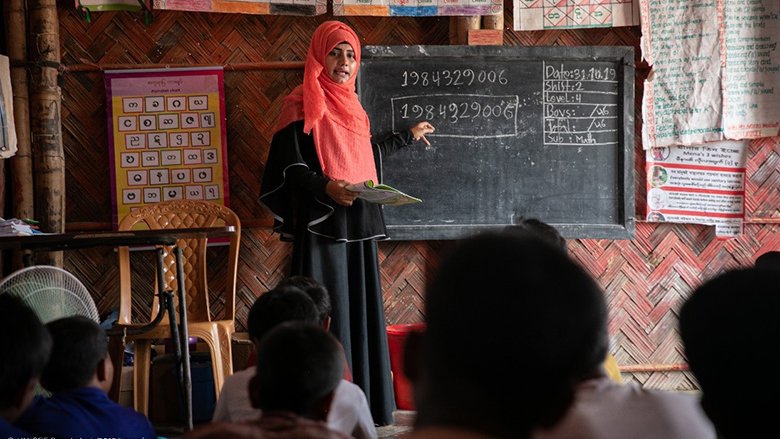
Around 18,000 rural Learning Center teachers have received training, including 3,000 teachers in Cox’s Bazar for ensuring quality education inside the camps. Photo courtesy: UNICEF
By the mid-2010s, although enrollment and gender parity rates improved at both primary and secondary levels, Bangladesh still faced a persistently high adult functional illiteracy rate at over 50 percent and low education completion rates. Around five million children aged six to 13 remained out of school mostly in under-served areas and urban slums. In addition, from 2017, following an ethnic conflict in Myanmar, about a million displaced Rohingya people moved to camps in Bangladesh’s southeastern Cox’s Bazar district, more than 350,000 of them children requiring urgent educational and psychosocial support. The influx created further pressure on the already stretched local economy and social services, resulting in a further increase in school dropout rates and disengaged youth, especially girls and young women, in the hosting community.
Bangladesh’s goal of universal primary enrolment is hindered by persistent inequity of access, completion rates, learning outcomes, and transition to upper grades and to secondary education. ROSC II, which began implementation in 2013, provided children at high risk of dropout with programs built on experience from both public schools and NGO-based innovations that blend formal and non-formal education. ROSC II created new opportunities for children in targeted deprived communities to complete Grade 5 and pursue secondary education. Since 2017, ROSC II has facilitated the creation of innovative learning centers (LCs) providing non-formal education through Government-NGO-UN collaboration and financial support from the IDA 19 Sub-Window for Refugees and Host Communities. Throughout the project, the Government has created robust monitoring and certification systems that have helped to scale and sustain such public-NGO-UN and community partnerships.
According to the ROCS II Theory of Change, the number of out-of-school children, especially girls and the disadvantaged, who have access to education would be increased by (i) providing grants to establish LCs (including in urban slums) and conditional allowances given to students who attend; (ii) enhancing education quality and grade retention through teacher development and classroom support; and (iii) strengthening management, monitoring and evaluation, learning assessments, and certification. In the long-term, this would lead to improved completion rates and improved life opportunities, allowing people to lead productive lives and escape poverty.
The principal results have been:
- Access to Primary Education: ROSCII provided access to second-chance education to 687,556 out of school children, about 49% of whom were female, in 148 sub-districts in around 20,000 community-managed LCs. About 87% of the supported children were categorized as disadvantaged. Nearly 48,000 urban slum children received primary education following the accelerated learning model (2013 to 2019).
- Support for Rohingya children: About 112,000 Rohingya children were enrolled in 1,331 LCs inside the camps. Around 300,000 children received psychosocial support (2017-2021).
- Quality of Education: A total of 18,000 rural LC teachers received training and refreshers (2013-2018). Some 3,000 teachers in Cox’s Bazar received training through a UNICEF module in Cox’s Bazar for ensuring quality education in the LCs inside the camps (2019-2020). The average grade retention rate was improved to as high as 83% and the pass rate in the completion exam was 84%.
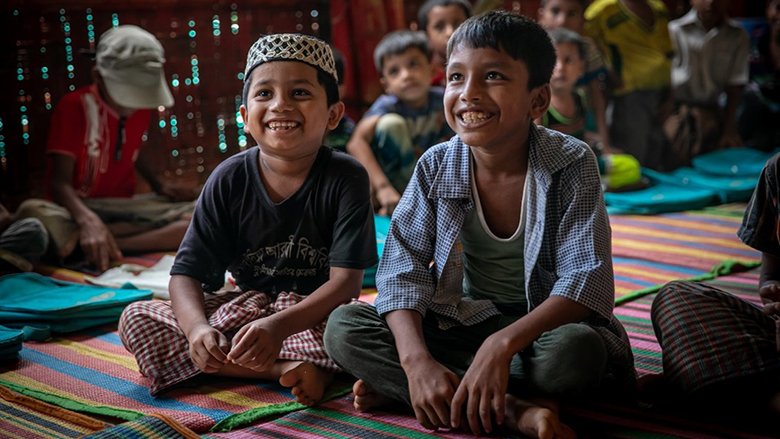
Bank Group Contribution
Original financing (Board Approval in October 2012) was US$130 million IDA Credit. An Additional Financing (AF) of US$25.0 million was added from the IDA-18 Regional Sub-Window for Refugees for providing educational support to the Rohingya children (September 2018). A second AF of US$6.5 million was added to cover exchange rate losses (December 2020).
The United States Agency for International Development (USAID) provided a US$2.5 million trust fund (Bank Executed) to support the design of the ROSC II pilots and evidence-based impact evaluations. The Government of Canada co-financed US$4.1 million for Rohingya Children’s education by buying down the credit portion of the grant from the IDA Refugee Window.
The Project’s success depended on the cooperation of several NGOs, United Nations Agencies and Development Partners. LCs in rural areas were established with the support of over 70 local NGOs who helped establish community committees and manage the LCs, and provided training to teachers and SMC members. Save the Children, an international NGO, worked as a specialized agency to help design and implement the Urban Slum and Vocational Training components. UNICEF was responsible for the implementation of the Rohingya education component through eight partner NGOs. The Institute of Education and Research of Dhaka University designed and monitored the training programs. USAID and Canada co-financed the design and activities.
Moving Forward
ROSC II established a successful system for reaching vulnerable, out-of-school children. The program’s sustainability was the subject of continuous attention during its implementation and remains a high priority for the Government’s goal of universal basic education set forth in its National Education Policy. To ensure the mainstreaming of the program’s approach, the activities of ROSC II, including the innovative approach, are being replicated by the Government’s Primary Education Development Program 4 (PEDP4), which is co-financed by an SDR 484.2 million (US$700 million equivalent) IDA Credit and by resources provided by nine other Development Partners.
Beneficiaries
Nahid Sarker, 15, lives with his parents in a village in North-Western Bangladesh (Natore District). In 2014, Nahid enrolled in an Ananda School supported by ROSC II. After completing five years’ education Nahid participated in the PEC Examination in 2018, constantly struggling against adversities and achieving a 4.08 GPA, a first step toward his dream of becoming a pilot. The ROSC II project provided free books, a school bag, a uniform, and a stipend. He is now in grade VII, continuing his studies at Kuripakia Fazil Madrasha in the Nahore district. “My dream is to educate myself, escape poverty and put a smile on my parents’ faces,” he said.
This site uses cookies to optimize functionality and give you the best possible experience. If you continue to navigate this website beyond this page, cookies will be placed on your browser. To learn more about cookies, click here .

Changing Course, Transforming Education in Bangladesh on International Day of Education 2022

Ms. Beatrice Kaldun, Head of Office and UNESCO Representative congratulated the organizers and highlighted that business as usual will not work and transforming education through Global Citizenship Education and Education for Sustainable Development is the way forward to address global challenges such as digital transformation and climate change. Referring to the Futures of Education report launched by UNESCO last November, she urged everyone to participate in the futures of education discussion and action – children, youth, parents, teachers, researchers, activists, employers, cultural and religious leaders.
More than 80 participants from the government and academic institutions attended the celebration event in person and online. Mr. Golam Hasibul Alam, Secretary of MoPME and Mr. Md. Abu Bakr Siddique, Secretary, SHED, MOE were also present at the event and made their intervention on the theme of IDE.
Related items
- UNESCO Office in Dhaka

Other recent news

- Our Leaders
- Where We Work
- Child Protection and Participation
- Health, Nutrition and WASH
- Livelihoods & Food Security
- Faith and Development
- Advocacy and Campaign
- HEA, DRR, CCA and Response
- Grant-Funded Projects
- Bangladesh Rohingya Crisis Response
Education and skills building
The Government of Bangladesh recognizes education as a means of reducing poverty and improving the quality of life for children. As a signatory to the Convention on the Rights of the Child, the Government of Bangladesh has made positive steps towards fulfilling children's rights to education, according to the Education for All and Millennium Development Goals. Education receives the largest budgetary shares every year. But despite significant efforts by the Government of Bangladesh and other development partners, over 50% of children who enroll in the first grade fail to complete primary school. Only about 2% of the children enrolled in school achieve all of the competencies by the end of the fifth grade. As a result the literacy rate in Bangladesh is significantly lower than that of other developing countries, hovering around 53.8% according to World Bank’s World Development Indicator (2011) and much of the emerging labor force continues to lack the basic education skills necessary to help pull the country out of poverty. Bangladesh faces many challenges in improving its education system. The country’s population is expected to reach about 170 million by 2020 putting extreme pressure on its public infrastructure. Currently 45% of the population is estimated to be 15 years old or younger. At least 15% of current school-aged students have never entered school in spite of increases in overall enrollment trends, greater gender parity and substantial increases in public expenditure on education. The estimated dropout and repetition rates for primary school students remains high, with about 40% of all students dropping out by the third grade.
World Vision Bangladesh is playing a role in the sustainable impact on the rights of education by offering two types of learning opportunities in its education projects: formal and informal . Formal education takes place in a school setting and provides a curriculum-based learning environment for children at all levels of instruction. Non-formal education is community-based and may include adult learning programs, children and youth life skills development, and other learning experiences that integrate topics such as HIV awareness and health education.
Facts about Education:
- The Government of Bangladesh spends 2.4% of GNP on education. This is the lowest percentage in the region. Both India and Nepal spend 3.2% of GNP on education. Pakistan spends 2.7%.
- Primary school enrollment rate is approximately 94%. However only 76% of students complete class 5
- Most un-enrolled children belong to socio-economically disadvantaged households and illiterate parents
- The primary drop-out rate is 23.6%
- The average attendance rate is 60%
- On average, students take 6.6 years to complete the five-year primary school program
World Vision Bangladesh Response:
World Vision Bangladesh’s Education Program has directed 16% of resources to quality improvement; spending the majority on in-kind support such as school supplies, school fees and educational institutional support. In order to maximize the impact of the investment in education, the World Vision Bangladesh education strategy must focus resources and initiatives on improving educational quality and learning environments as well as support for full enrollment and literacy as a basic right.
The main objective of World Vision’s Education Project is to ensure a quality educational experience for all enabling competency acquisition for transformational development. Thus, World Vision Bangladesh Education seeks to pursue its call and aspiration through four intervention strategies:
- Enhanced education quality and delivery
- Development of community capacity to initiate and manage educational interventions
- Ensuring school access for all children
- Building opportunities for under –educated adults
To achieve these intervention strategies, World Vision Bangladesh Area Development Programs (ADPs) organize awareness building programs and services to strengthen the quality of education for the community children.
Key Results:
- 80% of participants from communities have actively participated in educational awareness building activities to strengthen quality of education program
- Coaching Program is one of the effective programs of the Education Project for substantial improvements in the performance of weak students. In FY’11 a total of 113% targeted students attended in the coaching program of which 16% were from pre-school level, 51% from primary school level and the rest 32% from secondary level.
- 91% of students have received educational supports in the form of both cash and kinds
- 95% educational institutes have received educational supports
- 92% of student attended pre-school
- 101% of pre-school children enrolled in primary school
- 77% of students attended the non-formal primary education (NFPE)
- 94% of children received alternative education in Children Education Development Committee (CEDC) program
- 81% of ethnic students received educational support to continue their education properly and similarly
- 90% of community children, youth, adolescent and parents attended in moral/religious or faith based education
- 99% of disabled and orphaned people received different types of inputs
Download Factsheet
Impact Story:
“I enjoy my schooling very much because it helps me associate with students different grounds as well as teachers. I am aware of child rights and about how to be a good student. The school life changed my life in many ways; I am now able to lead my life in a disciplined manner. Day by day I am acquiring knowledge on behavioral change both physically and mentally.”
10-year old Sonia Akter appreciates her teacher’s contribution to her success in understanding the real meaning of life. Supported by World Vision Bangladesh Sponsorship Project under Chittagong ADP she is getting different types of education facilities and materials from World Vision. She and the other sponsored children are able to participate in different educational activities by Chittagong ADP of World Vision Bangladesh.
- Education: Current Condition, USAID Bangladesh
- Annual Monitoring & Evaluation Report FY 2011

An official website of the United States government
Here's how you know
The .gov means it’s official. Federal government websites often end in .gov or .mil. Before sharing sensitive information, make sure you’re on a federal government site.
The site is secure. A lock ( ) or https:// ensures that you are connecting to the official website and that any information you provide is encrypted and transmitted securely.
Keyboard Navigation
- Agriculture and Food Security
- Anti-Corruption
- Conflict Prevention and Stabilization
- Democracy, Human Rights, and Governance
- Economic Growth and Trade
- Environment, Energy, and Infrastructure
- Gender Equality and Women's Empowerment
- Global Health
- Humanitarian Assistance
- Innovation, Technology, and Research
- Water and Sanitation
- Burkina Faso
- Central Africa Regional
- Central African Republic
- Côte d’Ivoire
- Democratic Republic of the Congo
- East Africa Regional
- Power Africa
- Republic of the Congo
- Sahel Regional
- Sierra Leone
- South Africa
- South Sudan
- Southern Africa Regional
- West Africa Regional
- Afghanistan
- Central Asia Regional
- Indo-Pacific
- Kyrgyz Republic
- Pacific Islands
- Philippines
- Regional Development Mission for Asia
- Timor-Leste
- Turkmenistan
- Bosnia and Herzegovina
- North Macedonia
- Central America and Mexico Regional Program
- Dominican Republic
- Eastern and Southern Caribbean
- El Salvador
- Middle East Regional Platform
- West Bank and Gaza
- Dollars to Results
- Data Resources
- Strategy & Planning
- Budget & Spending
- Performance and Financial Reporting
- FY 2023 Agency Financial Report
- Records and Reports
- Budget Justification
- Our Commitment to Transparency
- Policy and Strategy
- How to Work with USAID
- Find a Funding Opportunity
- Organizations That Work With USAID
- Resources for Partners
- Get involved
- Business Forecast
- Safeguarding and Compliance
- Diversity, Equity, Inclusion, and Accessibility
- Mission, Vision and Values
- News & Information
- Operational Policy (ADS)
- Organization
- Stay Connected
- USAID History
- Video Library
- Coordinators
- Nondiscrimination Notice
- Collective Bargaining Agreements
- Disabilities Employment Program
- Federal Employee Viewpoint Survey
- Reasonable Accommodations
- Urgent Hiring Needs
- Vacancy Announcements
- Search Search Search
Over the past decade, Bangladesh has made remarkable progress in expanding access to education. With 98 percent of children of primary school age enrolled in school, the country has achieved near universal primary enrollment as well as gender parity in equal access to education. Despite these advances in access, the quality of education remains a challenge, and many children in Bangladesh are not acquiring the foundational skills they need for continued learning. This is particularly true for marginalized groups. Children in crisis-affected areas – including those in host communities impacted by the Rohingya crisis – and children with disabilities are underrepresented and underreported in Bangladesh’s education system. USAID supports the Government of Bangladesh (GOB) at the pre-primary, primary and higher secondary education levels and strengthens development opportunities for youth who are not in education, employment or training.
Reaching Marginalized Children with Quality Education
USAID programs target children living in crisis-affected, marginalized and vulnerable communities with a special focus on girls and children with disabilities. USAID works to build awareness and sensitize communities and schools on ensuring all children’s access to quality education, while strengthening the skills of district education officials, teachers, and school communities to deliver quality education.
Educating Children Beyond the Classroom
In 2005, USAID established Sisimpur , the Bangladesh version of the popular Sesame Street children’s educational TV program. USAID continues to support Sisimpur to produce and air episodes on national TV, providing millions of children across the country with high-quality educational content.
Empowering Youth and Promoting Peace
USAID youth activities build skills and empower out-of-school youth to increase their employability, enabling them to contribute to the economic growth of Bangladesh. Programs also prioritize gender equity and reaching out-of-school youth from marginalized populations, and hard-to-reach areas. USAID education programs also aim to strengthen Bangladeshi youth’s resilience against violent extremism and anti-democratic values.
Overcoming COVID-19 Challenges
The COVID-19 pandemic exacerbated the challenges already facing Bangladesh’s education system. During the height of the pandemic, the GOB focused on ensuring schools implemented COVID-19 safety measures so children, especially those in marginalized communities, could safely return to schools. Schools reopened on September 12, 2021, after 18 months of closure. USAID partnered with UNICEF to support the Bangladesh Bureau of Statistics to measure pandemic learning loss. While the assessment revealed a drop in students’ foundational numerical skills and reconfirmed previously reported poor reading abilities, it also explored potential interventions to address the needs of students after this prolonged absence from classrooms.
- USAID has helped bring 15 consecutive seasons of Sisimpur , Bangladesh’s version of Sesame Street, to millions of Bangladeshi children. In season 15, Sisimpur will introduce viewers to Julia, a four-year-old Muppet who has autism to help promote diversity, equity, and inclusion both in the classroom and in communities.
- In 2022, USAID continued to improve education for children in remote locations across the country through establishing 250 parent-teacher learning forums, distributing learning materials, and establishing 100 classroom-based libraries.
- To align with the Government of Bangladesh’s goal to empower the country’s young people, USAID and other foundations have helped to augment the government’s youth services, including providing vocational skills training.

Bangladesh Menu
- Disaster, Resilience and Humanitarian Assistance
- Environment and Climate Resilience
- Health and Nutrition
- Country Development Cooperation Strategy (2020-2027)
- Press Releases
- Our Stories
Work With Us
- Partnership Opportunities
- Business Opportunities

- High contrast
- Representative
- Meena and UNICEF
- National Ambassadors
- MEDIA CENTRE
Search UNICEF
0B792406-3C90-48E8-AF22-4D48618D699F Created with sketchtool.
Right to education
- Available in:

A year of hope and empowerment for children in Dhaka South

Schools ill-equipped to provide healthy and inclusive learning environments for all children – UNICEF, WHO

UNICEF: Education milestone for Rohingya refugee children as Myanmar curriculum pilot reaches first 10,000 children

With 23 countries yet to fully reopen schools, education risks becoming ‘greatest divider’ as COVID-19 pandemic enters third year – UNICEF

First day of school 'indefinitely postponed' for 140 million first-time students around the world – UNICEF

Reopening schools cannot wait
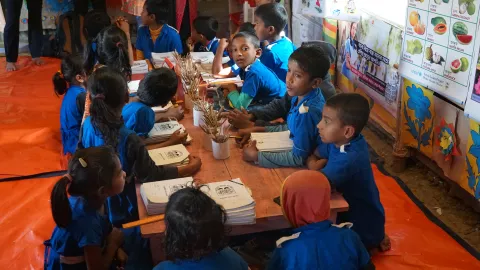
Ready to Start School, Learn and Work
Files available for download (1).

Providing education during the COVID-19 pandemic

40 million children miss out on early education in critical pre-school year due to COVID-19

- General Body
- Executive Board
- Trust/Project Offices
- International Donors/Partners
- Other useful links
- Where we work
- Activity Calendar
- Caritas Central Office
- Caritas Barishal Region
- Caritas Chattogram Region
- Caritas Dhaka Region
- Caritas Dinajpur Region
- Caritas Khulna Region
- Caritas Mymensingh Region
- Caritas Rajshahi Region
- Caritas Sylhet Region
- Project list – Education
- Quality Education /
Share this post
- Share --> Share
- Sectoral Summary
- Project list
- Sectoral Summary – DM
- Project list – DM
- Sectoral Summary – DIP
- Project list – DIP
- Strategic Plan of Caritas Bangladesh
- Latest Events
- Upcoming Events
- Refugees from Rakhain State
- Situation Report
- Newsletter-2020-2021-2022-2023
- Newsletter – 2018-19
- Newsletter – 2017
- Newsletter – 2016
- Newsletter – 2015
- Newsletter – 2014
- Newsletter – 2013
- Newsletter – 2012
- Newsletter – 2011
- Newsletter – 2010
- Newsletter – 2009
- Annual report 2022-23
- Annual Report 2021-2022
- Annual Repot 2020-2021
- Annual Report 2019-2020
- Annual report 2018-19
- Annual Report 2017-2018
- Annual Report 2016-2017
- Annual Report 2015-2016
- Annual Report 2014-2015
- Interview/Write-up
- Special Publication
- Video Gallery
- Photo Gallery
- Office circular/ Govt. special circular/ Report
- Information Delivery Unit (IDU) & Citizen Charter
- Project Summary
- স্বাধীনতার সুবর্ণজয়ন্তী কর্নার
Copyright © 2016, Caritas Bangladesh. Developed By Solvebots.
- Annual reports
- Other publications
- Menu menu close
- Team in Switzerland
- Regional coordination offices
- Partners and network
- Goodwill ambassadors
- Our actions for education
- Our approach to education
- Education staff training
- Teaching and learning materials
- Education in emergencies
- Education for sustainable development
- Our actions for the health of women and babies
- Health education
- Involvement of communities
- Healthcare training
- Contribution to national policies
- Our awareness-raising programs
- A fairer world
- Reporters for rights
- A Song for Education
- Our impact in the world
- Burkina Faso
- El Salvador
- Switzerland
- How to help
- Regular giving
- Bequests and legacies
- Become a volunteer

A quality education
From 2005 to 2016.
132’000
children have benefited from our quality education
2’400
teaching staff members have been trained
Enfants du Monde currently does not have any ongoing informal learning education projects in Bangladesh. However, trainers trained in the past can be quickly mobilized to support new partners in their efforts to improve the quality of education.
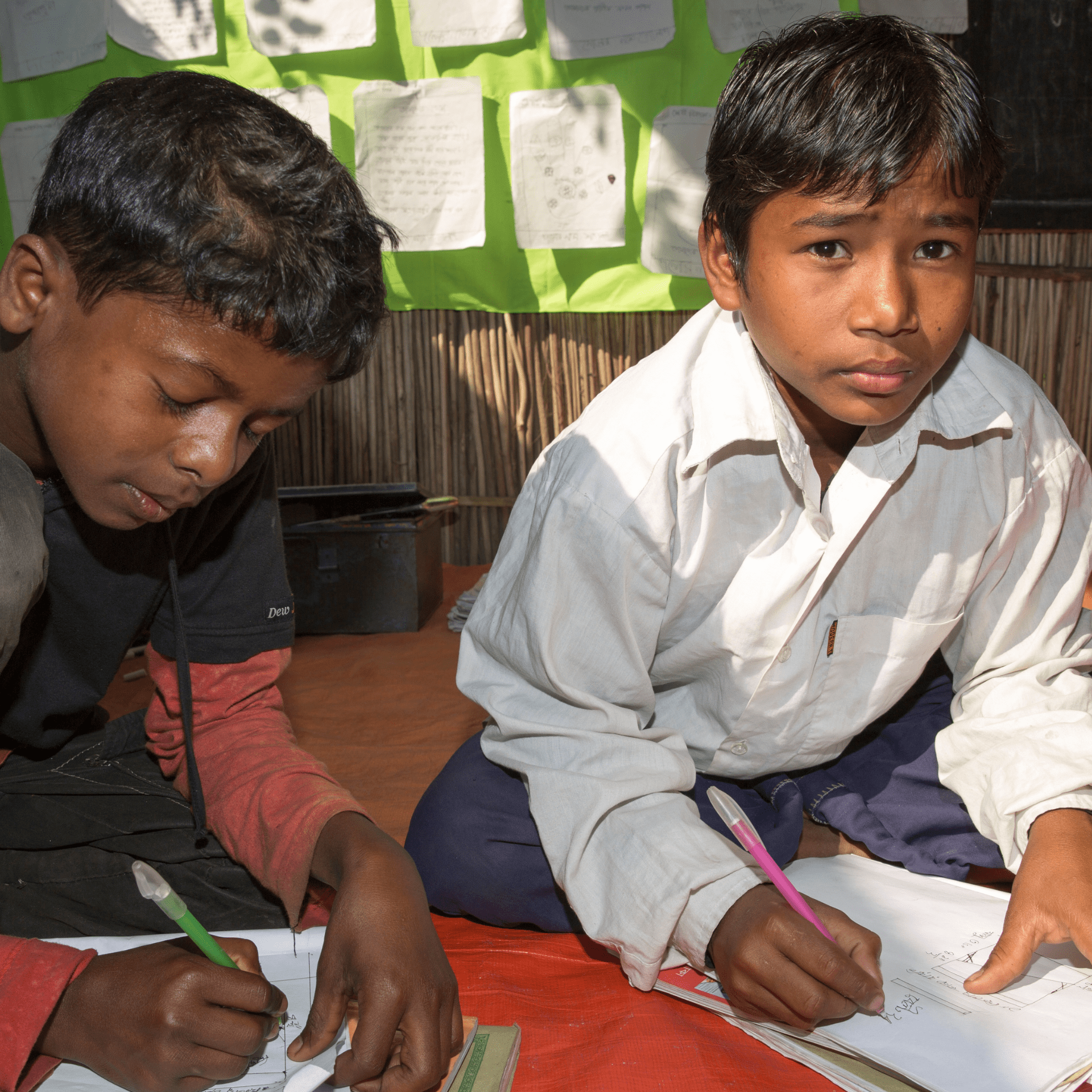
Enfants du Monde helps children escape poverty
From 2005 to 2016, Enfants du Monde carried out different education projects in collaboration with local partners Jagorani Chakra Foundation, Aparajeyo Bangladesh, and the Centre for Mass Education in Science , which have given us ample experience in the country.
We supported many schools that sought to provide access to education to children who had never gone to school or who had dropped out too soon , mostly in rural regions and in marginal urban areas. There was a special focus on girls’ education to provide them with the best opportunities in life, all while protecting them from some forms of exploitation and curbing the tradition of forced marriage.
Thanks to our efforts aimed at improving the quality of education , which allows students to acquire not only basic knowledge but also practical knowledge applicable to their daily lives, Enfants du Monde has offered a better prospect to thousands of boys and girls.
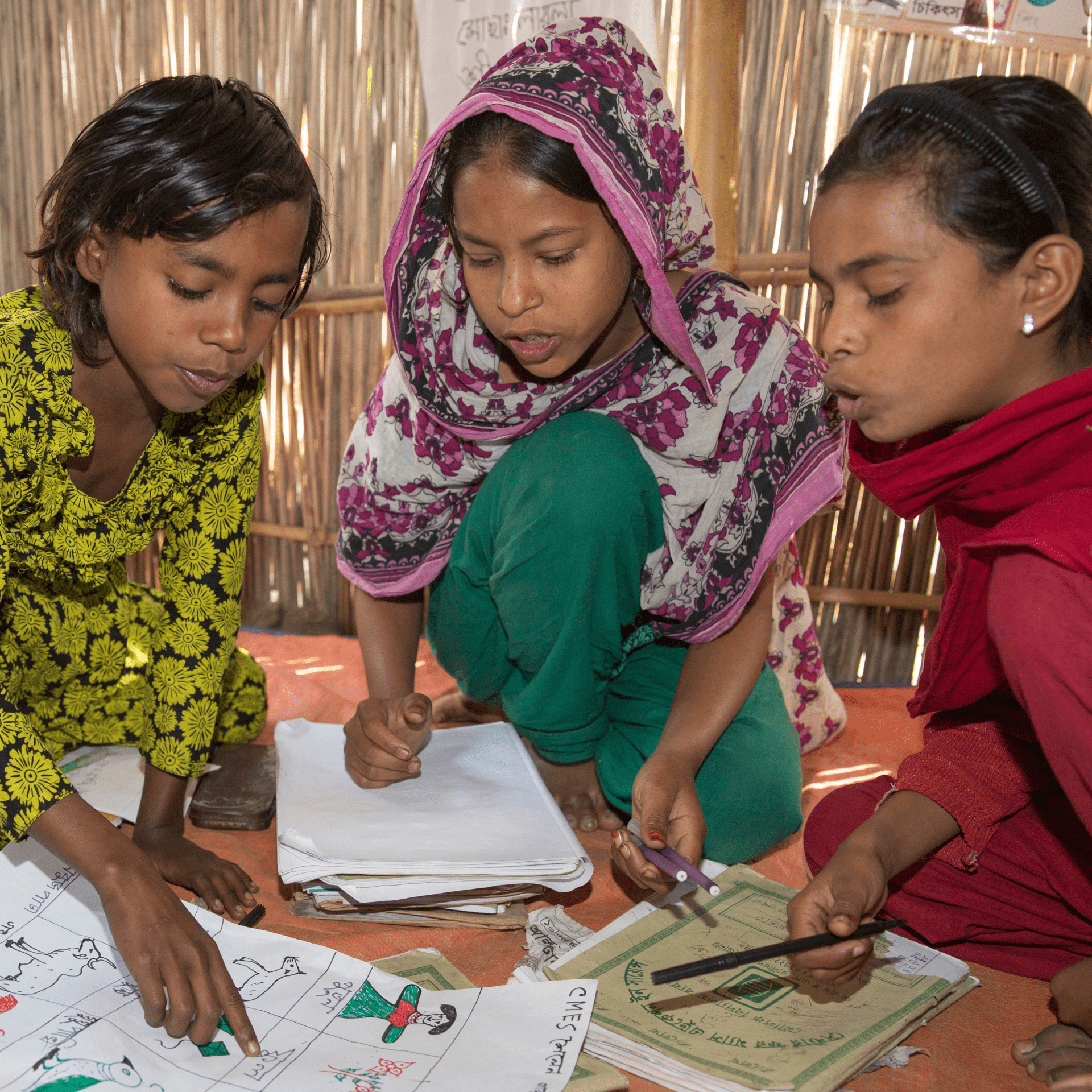
Our quality education project, conducted from 2005 to 2016, has benefited about 11,000 children per year as well as more than 200 teachers who have been trained in active and innovative pedagogy.

Morium Musammat, mother in Bangladesh
We send our kid Mamun to school because he learns not only to read and to write, but he is also trained in practical work. Like that, after finishing school, we could earn some money. This offer doesn’t exist in other schools.
Contact our team
In Switzeland Enfants du Monde Rue de Varembé 1 1202 Geneva Tel. +41 22 798 88 81 Email: [email protected]
In Bangladesh House n°18, Flat n°402, Level n°3, Road 24, Block K, Banani Dhaka-1213
Sra Shameema Akhter Shimul Phone: +8802 222 288 558 Email: [email protected]
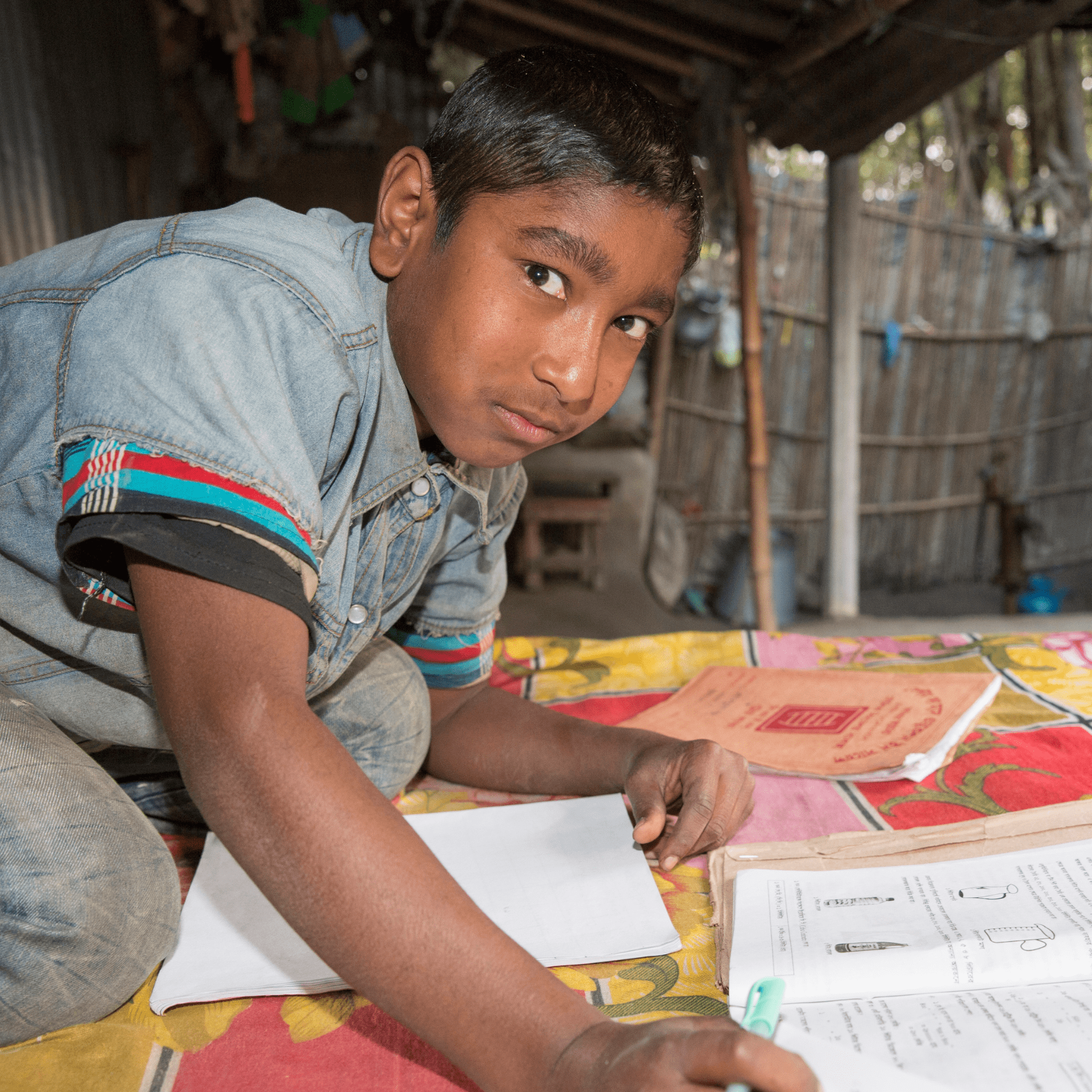
My donation makes a difference
I enable 122 pregnant women in Bangladesh to be ready for their childbirth and the risks associated with it.
I enable the ongoing training in maternal and newborn health to 7 health workers in Bangladesh.
Subscribe to our monthly newsletter to receive news about our association and learn more about our programmes.
At the moment, the newsletter is only available in German or French.

Quality of education is now the highest priority in preparing children for the 21st century.
Only one-third of the world has achieved the goal of education for all, with only half of the countries attaining universal primary enrolment. globally, children from the poorest households are five times more likely to be out of school than those from the wealthiest., our low-cost, quality scalable schooling model has made us the world’s largest provider of private secular education. we follow a holistic approach to lifelong learning, addressing educational needs from early childhood to higher academic levels. we partner with governments to support their efforts in reaching the unreached and creating nationwide systemic change..
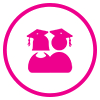
Home school
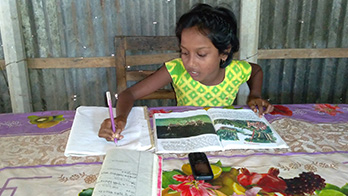
Radio school
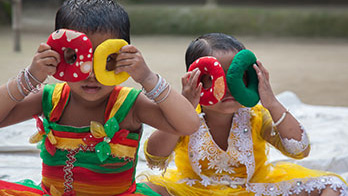
Early childhood development centres
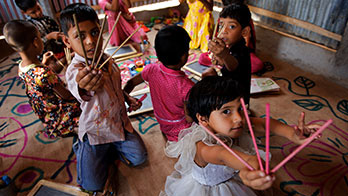
Pre-primary schools
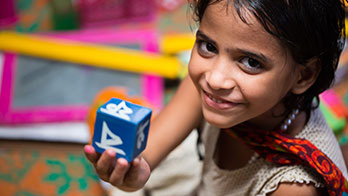
Primary schools
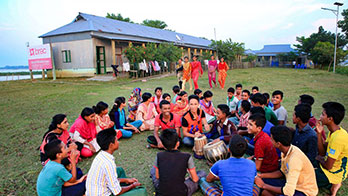

Secondary schools
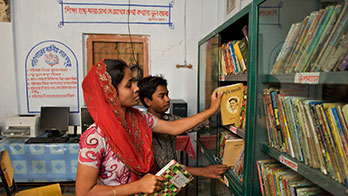
Community learning centres
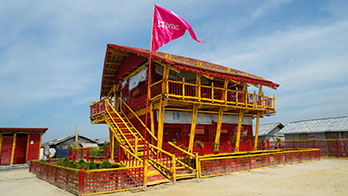
Education in emergencies
How we do it.
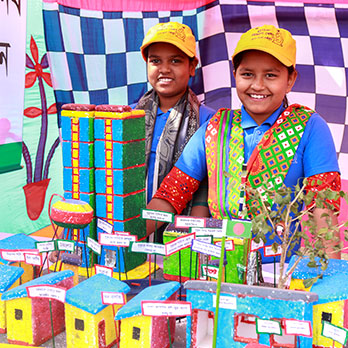
Independent thinking
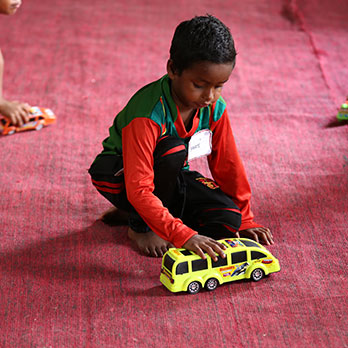
Learning beyond textbooks
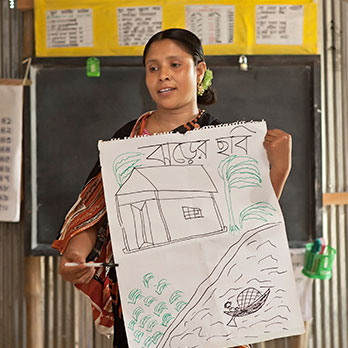
Wider support for education
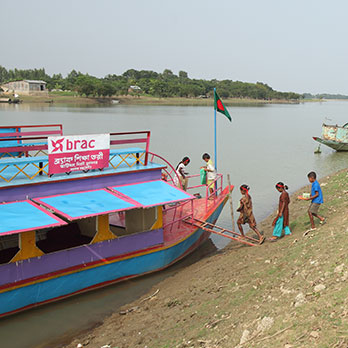
Floating schools in remote areas
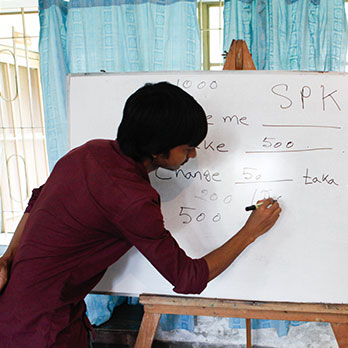
Safe spaces
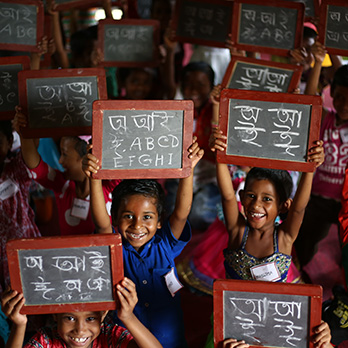
Quality, curriculum and material development

ICT in education

Inclusiveness
Why it works.
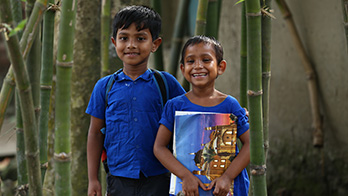
Equal opportunities
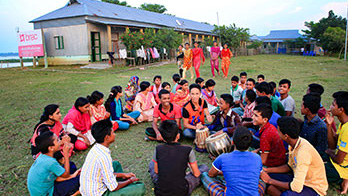
Community-centered schools
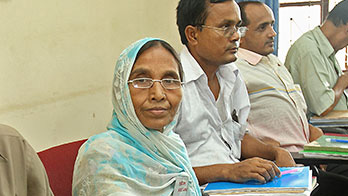
Exemplary educators
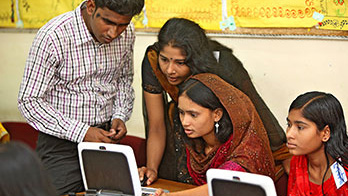
Peer mentoring
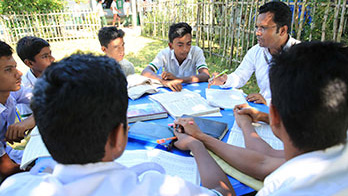
Monitoring from start to finish
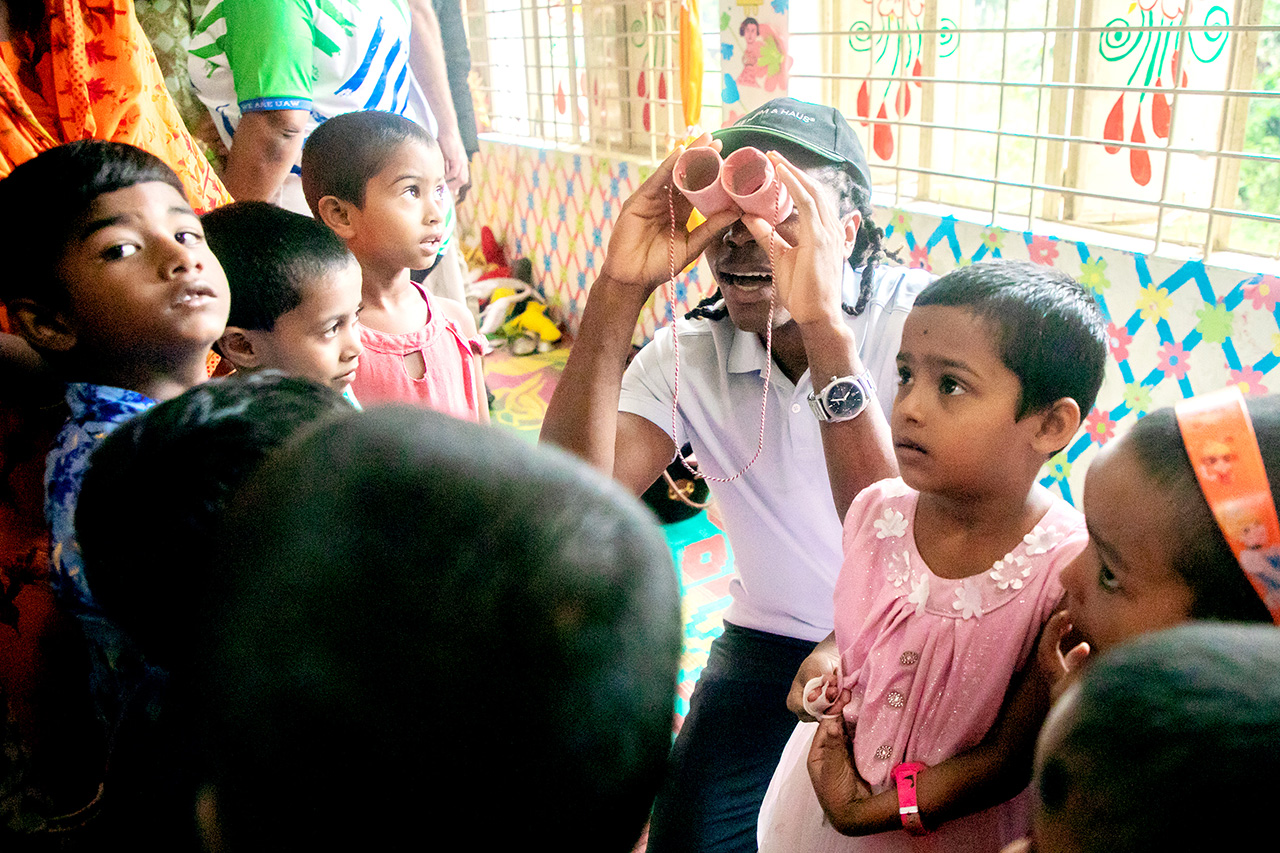
26 October 2022
Sierra Leone’s Education Minister’s visit to Bangladesh to learn from BRAC play-based and experiential learning methods for children
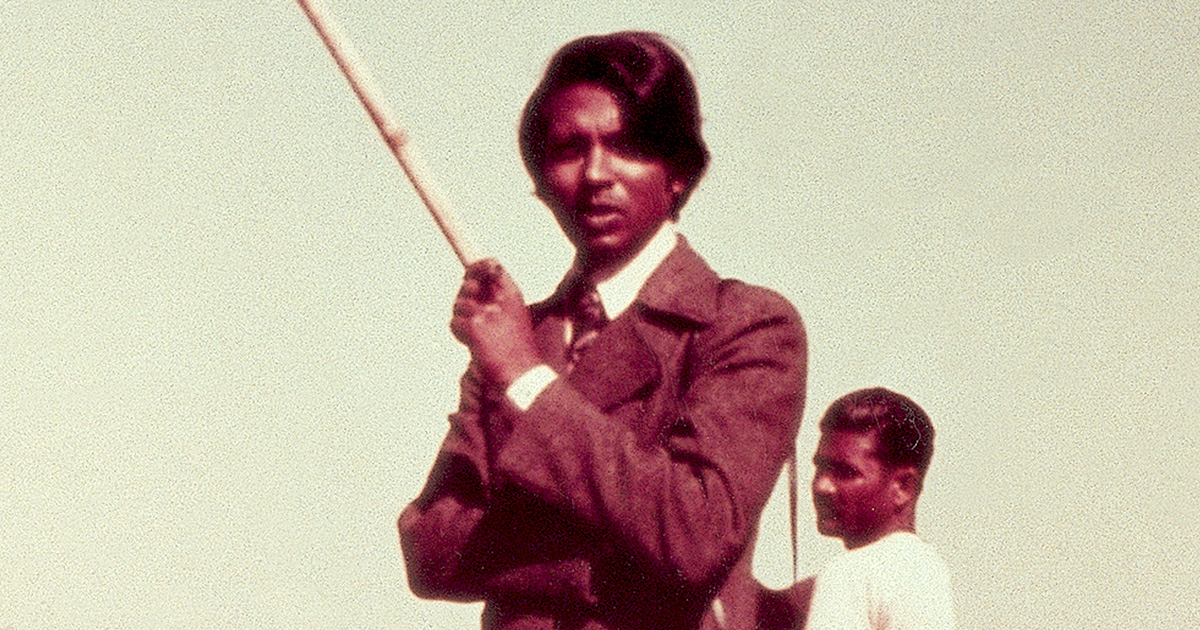
20 March 2022
BRAC’s founder story (1936-2019)
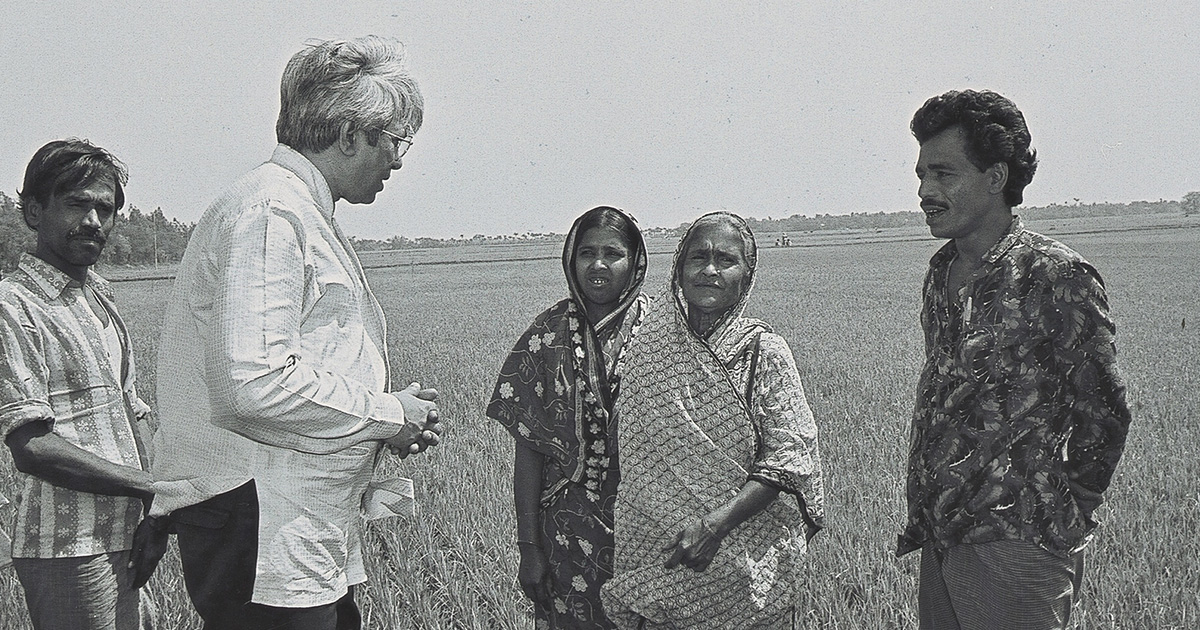
BRAC’s origin story
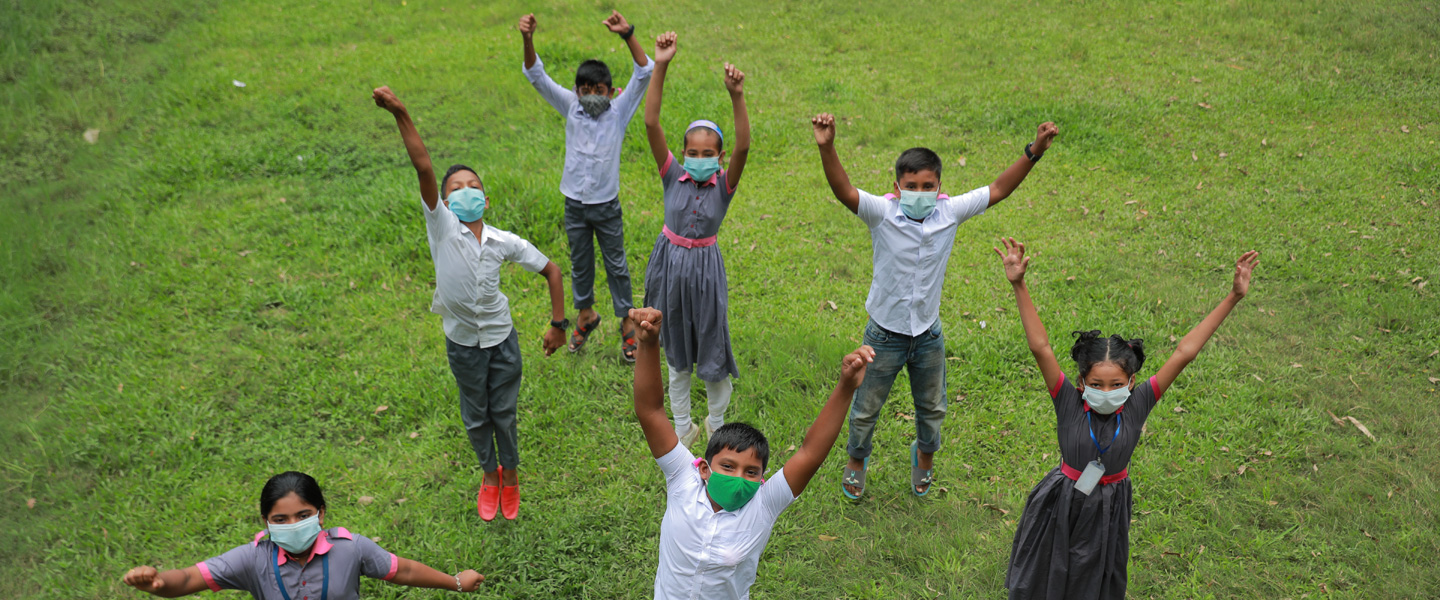
6 October 2021
Amidst almost-empty classrooms in many schools, others have 90% of their students back. What’s…
Published on: The Good Feed
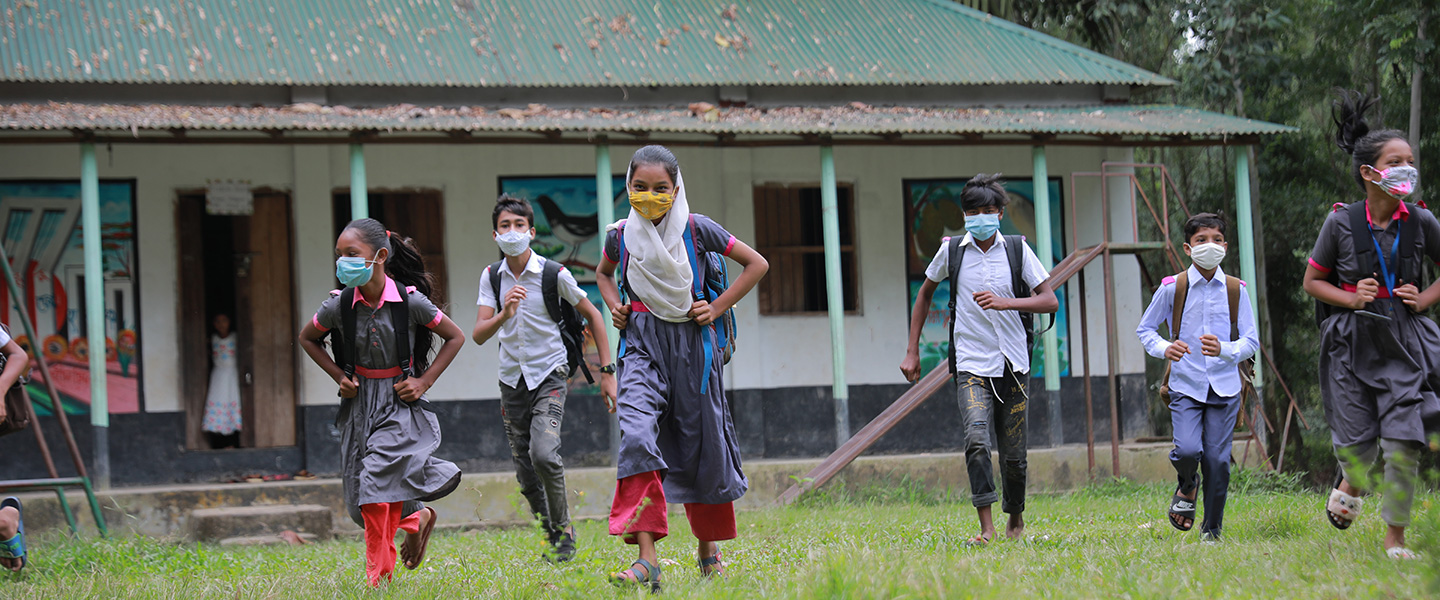
19 September 2021
Schools in Bangladesh were closed for longer than in any other country. Here’s how BRAC is…
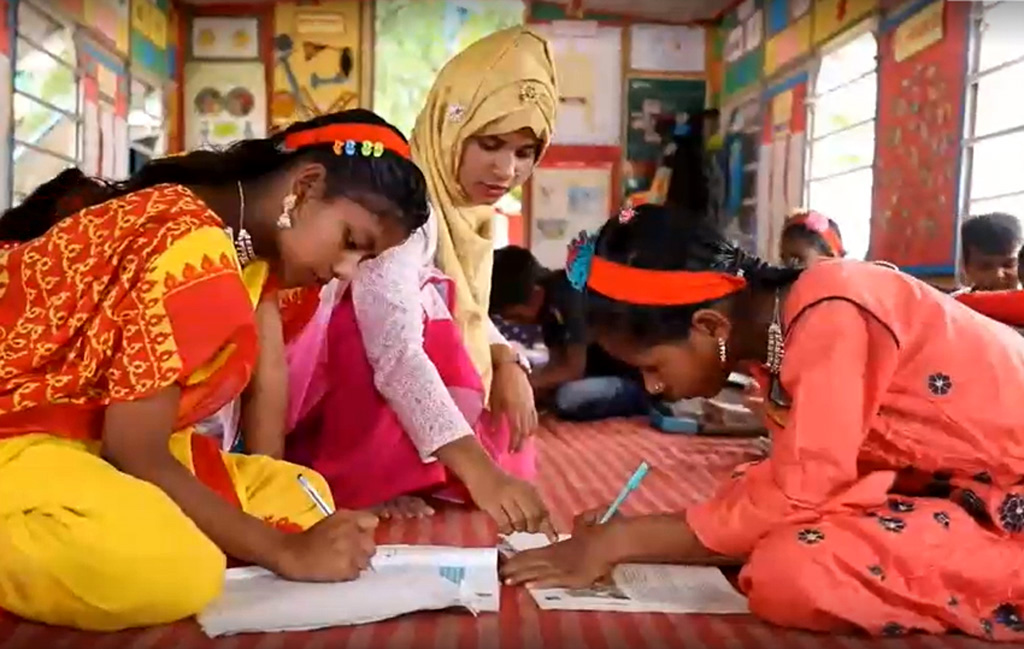
10 September 2021
Putting people at the centre: BRAC’s phone school
Published on: Dhaka Tribune
RESEARCH AND PUBLICATIONS
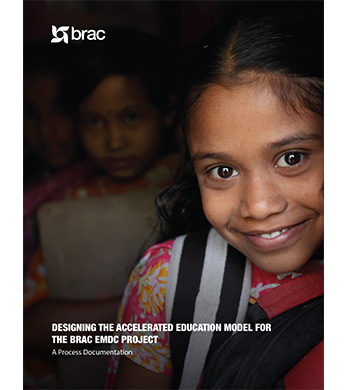
Report: Designing The Accelerated Education Model For The BRAC EMDC Project-A Process Documentation
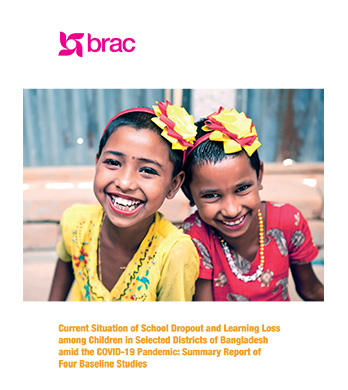
Report: School dropout and learning loss in selected districts of Bangladesh during the COVID-19 pandemic
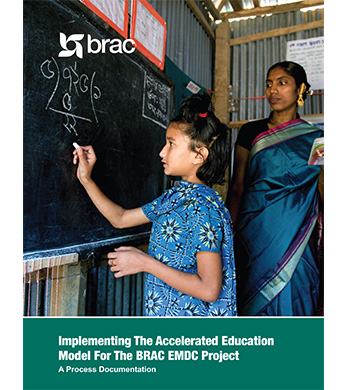
Implementing the Accelerated Education Model for the BRAC EMDC Project
Join the world's biggest family.
Secondary Education Development Program - SEDP
- 16/11/2023: REOI for National Firm to Conduct Test Administration of NASS 2023
- 16/11/2023: Terms of References for National Firm to conduct Test Administration of NASS 2023
- 16/11/2023: REOI for National Assessment of Secondary Student Consultant (Individual)
- 16/11/2023: Terms of References and RFA for National Assessment of Secondary Student Consultant (Individual)
Quick Links
Related links, welcome to sedp website.
THE IPF COMPONENT OF THE BANGLADESH TRANFORMING SECONDARY EDUCATION FOR RESULTS PROGRAM - Tribal Peoples Planning Framework (TPPF) - April, 2017 Click here to download
Government's Secondary Education Develop-ment Program (SEDP) for implementing the next five-year projects from the financial year (FY) 2018-19 to FY 2022-23, will be costing US dollar 17.2 billion.The Directorate of Secondary and Higher Education (DSHE) will place the proposals for approving and implementing the SEDP on Sunday to the Ministry of Education, DSHE sources said.
SEDP will be financed primarily from the government sources, with support from development partners including the World Bank (WB) and the Asian Development Bank (ADB), the sources said adding that the planned contribution from the WB would be American dollar 500 million plus American dollar 10 million GFF and from ADB American dollar 225 million. ADB and WB will subsets of SEDP with the agreed and selected program budget heads, the sources said adding that UNICEF, UNESCO and British Council will provide technical assistance in selected areas, within the program framework. But the cost of the technical assistance will not be part of the program cost.
View full article →
Others Information
Forms & publications, hon'ble minister, ministry of education.
বিস্তারিত -->
Hon'ble Deputy Minister, Ministry of Education
Secretary, secondary and higher education division, national program co-ordinator, sedp.
মোঃ বেলায়েত হোসাইন তালুকদার, অতিরিক্ত সচিব (উন্নয়ন অনুবিভাগ) National Program Coordinator (NPC) Additional Secretary (Development) Secondary and Higher Education Division Ministry of Education Email: [email protected] Tel: 02-9515733
Program Coordinator, SEDP
Abdun Noor Muhammad Al-Firoz Program Coordinator (PC) & Additional Secretary (Admin & Finance) Secondary and Higher Education Division Ministry of Education Email: [email protected] Tel: 02-223351051 View Profile/বিস্তারিত -->
জাতীয় সংগীত
জরুরি হটলাইন.
Government of the People's Republic of Bangladesh College Education Development Project (CEDP)
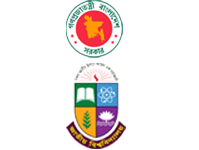
15 August 2023
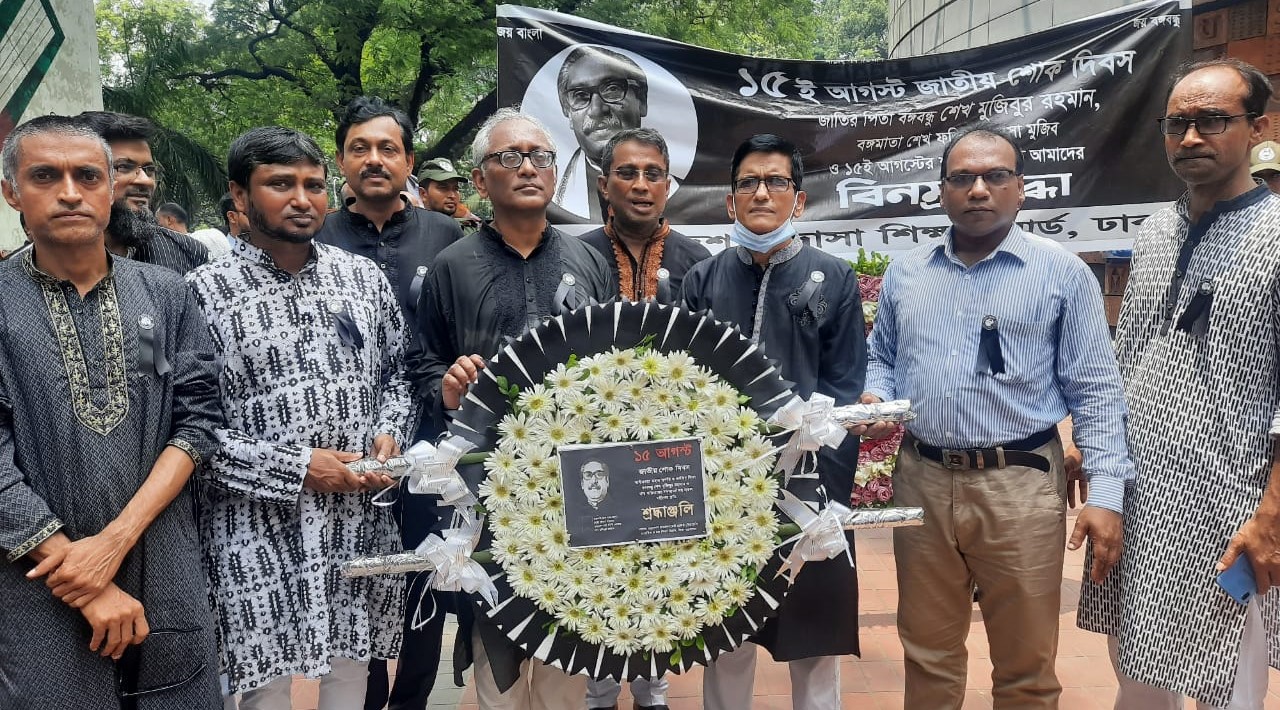
Tracer Studies Questionnaires Finalization – 11 April 2023
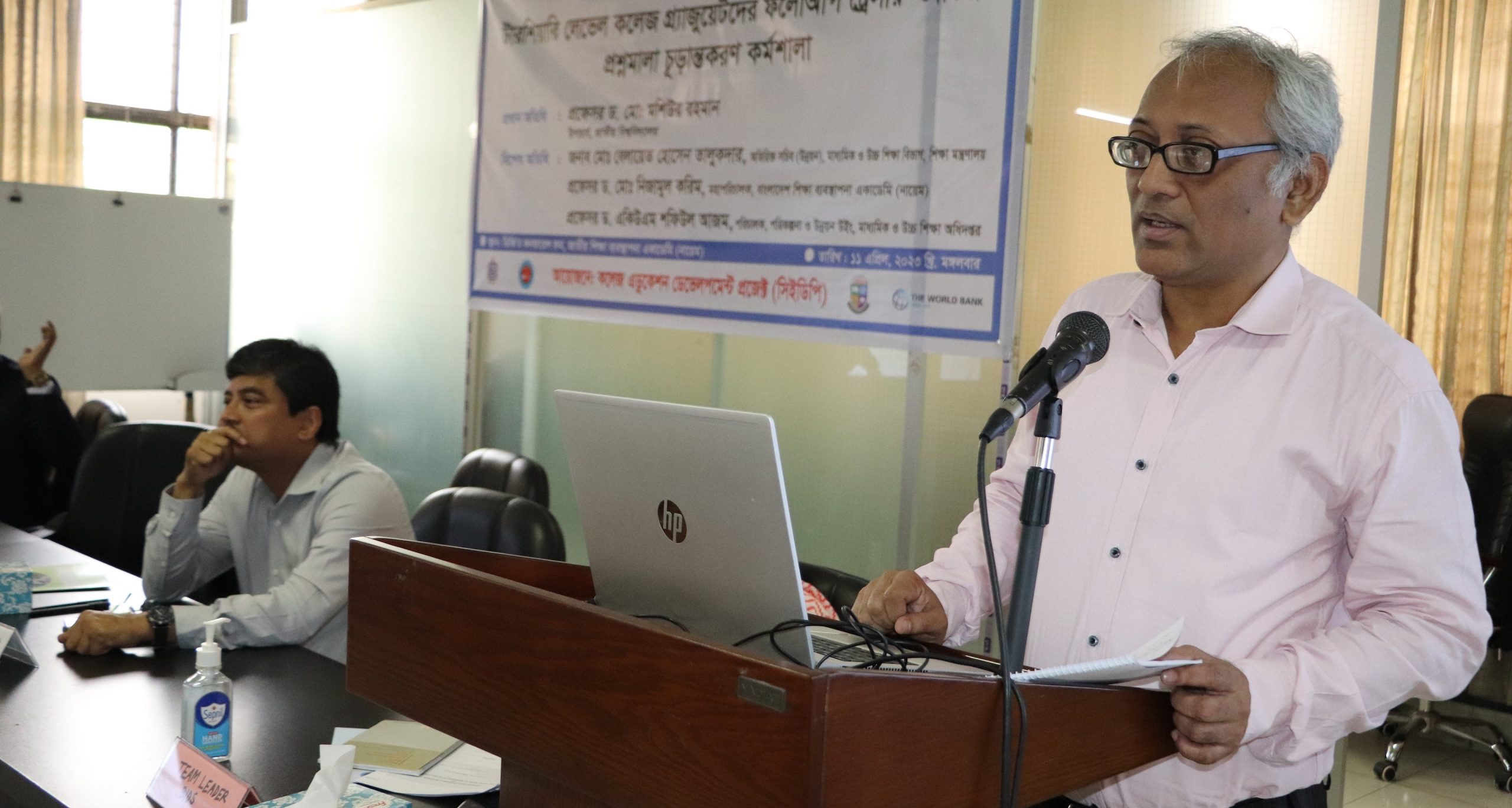
Tracer Studies Questionnaires Finalization – 11 April 2023
College education development project (cedp).
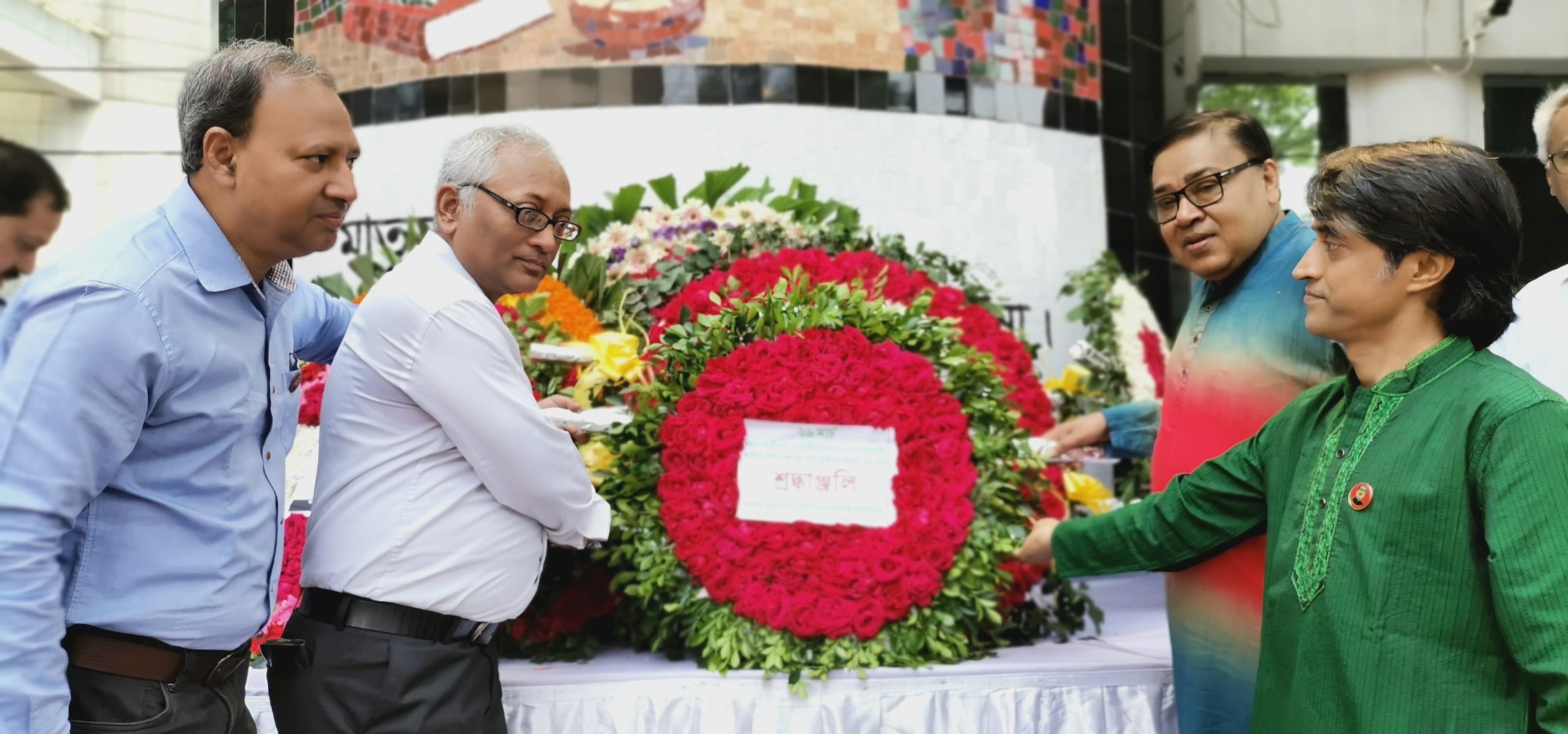
Independence Day, 26 March 2023
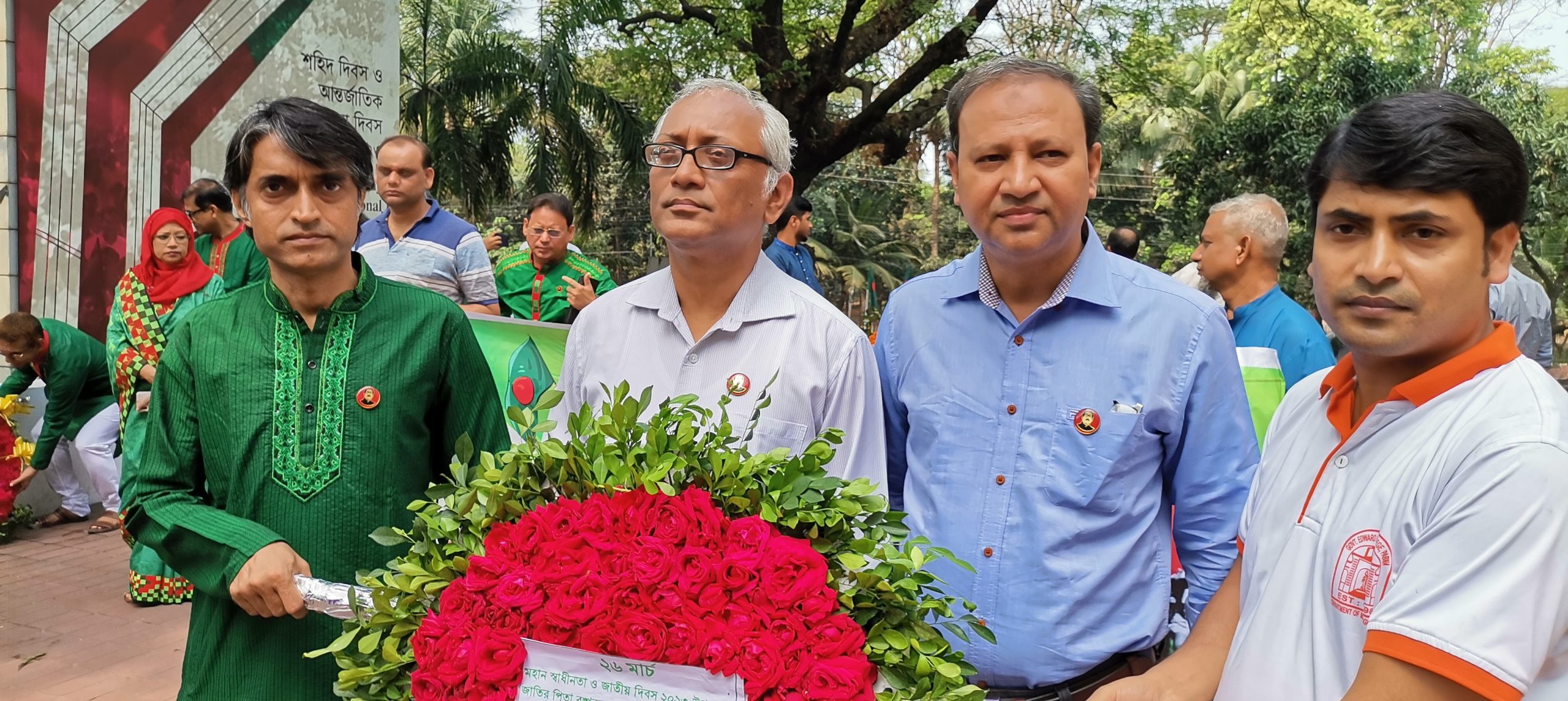
CEDP-banner
- NOC for Passport of T. S. Shamim Siddiky March 24, 2024
- গোপালগঞ্জ সরকারি বঙ্গবন্ধু কলেজে সিইডিপি প্রকল্প উন্নয়ন ও অবদান। February 23, 2024
- CEDP আওতায় প্রশিক্ষণ কোর্সের বিজ্ঞপ্তি February 18, 2024
- Notice for Basic ICT Training for College Teachers (10 Days ) January 10, 2024
- Request for Expression of Interest (REoI) For Procurement Specialist, Design and Supervision Engineer and Junior Accounts Executive December 19, 2023
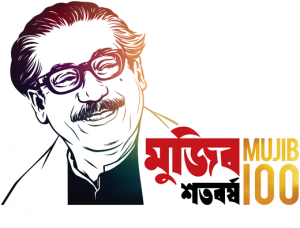
About the Project
Improving skills and productivity are crucial to Bangladesh’s quest to accelerate economic growth and become a middle-income country. However, the current skill levels of the labor force are unlikely to support future market demands. While there is an abundance of low-skilled workers, there is a strong demand for graduates with higher cognitive and non-cognitive skills and job-specific technical skills. This would require improving the quality and relevance of tertiary education so that education institutions are equipped to produce graduates with more market relevant skills.
To meet the human development needs of the country, the College Education Development Project (CEDP) was incepted in 2016. The CEDP aims to strengthen the strategic planning and management capacity of the college education subsector and to improve the teaching and learning environment of participating colleges.The Project specifically focuses on the tertiary college education sector under the National University (NU) which accounts for nearly two-thirds of all tertiary students in around 2,200 government and nongovernment colleges in Bangladesh.
The CEDP is under the Ministry of Education and co-executed by the National University and the University Grants Commission of Bangladesh. Other key partners include Directorate of Secondary and Higher Education (DSHE), Bangladesh Open University (BOU), National Academy for Educational Management (NAEM), University of Nottingham Malaysia Campus (UNMC).
The total project cost is US$ 130 million of which the World Bank is financing US$ 100 million and the remaining (US$ 30 million) by the Government of Bangladesh. The project implementation period July 2016- December 2023.
Overall socio-economic development of the country by improving quality and relevance of college education commensurate with national and international demand.
Ensuring effective strategic planning, management and quality of college education subsector.
Project Activities
The focus of CEDP is to improve the capacity of the National University college system to plan, manage, implement, and monitor its institutional programs and strengthen the foundation for the next phase of development activities. The Project supports the development of a Strategic Plan for the College Subsector, to provide directions and goals for the college education subsector and a consensus-based plan of action.
Through the availability of competitive grants, CEDP promotes institution-led activities that focus on creating quality teaching learning environment in government and non-government colleges. The Institutional Development Grants (IDGs) will focus on areas, such as: (a) upgrading basic teaching-learning facilities and Internet connectivity; (b) improving market relevance of college education through development of soft skills of students and linkages with the industry/employers; (c) introducing quality assurance; and (d) strengthening management capacity and upgrading the fiduciary system in the colleges.
The IDG activities will help provide government and education practitioners insight on the planning, management, and implementation capacity of participating colleges, informing the strategic plan, policy, and operations of the subsector.
CEDP promotes professional development of teachers through training offered through the establishment of a Training Consortium. The Training Consortium comprises of national training-offering agencies and the University of Nottingham Malaysia Campus as international partner to ensure global best practices in teacher training. Additionally, the project aims to fill teacher vacancies in government colleges and improve recruitment process of teachers for non-government colleges.
Expected outcomes
- A long-term Strategic Plan for the development of College Subsector at tertiary level
- Improvement of teaching and learning environment of around 122 government and non-government Honours teaching colleges
- Attainment of academic excellence of colleges by providing need based higher professional training for around 16,500 teachers, managers and future leaders
- Filling up around 2,700 vacant teaching posts in the government colleges
- Generation of employability and skilled human resources
Photo Gallery
College Education Development Project
Proposed development objective (pdo) and results f, education and public awareness, national environment management action plan, 1995, implications on the project, world bank’s environmental safeguards policy, potential project impacts and mitigation measures.
Content Search
Project manager - promoting language inclusive education in marma.
- CLEAR Global
Contract length: up to January 2025, possibility to extend depending on funding
Hours: Part time - 50 %
Location: Bangladesh, Dhaka
Travel: Minimal
Reporting to: Program Manager
Remuneration: 240,000-270,000 BDT/month (prorated to part-time hours)
Application Deadline: 1 May, 2024* *Due to the urgency of this vacancy, screening and interviews will commence immediately and the candidate can be selected at any stage before the closing date.
CLEAR Global/Translators without Borders (TWB) is an equal-opportunity employer, committed to having a diverse team where individuals of all backgrounds collaborate and learn from one another. We believe we can be most effective with diverse experience and expertise in our team. We recruit on merit, actively seek diverse applicant pools and encourage candidates of all backgrounds to apply. We do not discriminate on the basis of disability, age, gender identity and expression, national origin, race and ethnicity, religious beliefs, marital or parental status, or sexual orientation, and welcome all types of diversity.
We offer in addition to salary:
- Provident fund (both contributory): 10% of gross salary of individual staff members/month
- 10 days of casual leave and up to 15 days of recognised public holidays per year
Education in Bangladesh has historically been in Bangla, and there has been limited scope for indigenous children and adults to become acquainted with their mother tongue in written form. In 2010, the government recognised indigenous children's right to education in their respective mother tongues and updated the National Education Policy with activities to arrange indigenous textbooks and teachers. Since then various initiatives have been taken to implement the policies however the work has not yet reached the desired scale and reach.
CLEAR Global, commissioned by the Australian Department of Foreign Affairs and Trade (DFAT), has undertaken to investigate language and communication challenges faced by speakers of indigenous languages, focusing on speakers of Marma language in the Chittagong hill tract region. The project is two-fold: a baseline study will be carried out to better understand the communication needs and challenges of the Marma people in Bangladesh, and in parallel the team will explore how language technology and inclusive digital solutions can improve access to government led initiatives (ICT tools) that aim to increase quality of education through online training and skill development for teachers.
The Project Manager (PM) is responsible for ensuring operational quality, effectiveness and efficiency across project activities.The PM will ensure the timely and effective planning and delivery, monitoring and learning of activities, and contract and budget management. The PM will play an important role in establishing relationships with local governmental institutions, organizations, and tech partners seeking sustainability and continuity of the solution. The PM will also coordinate and contribute to proposal writing and fundraising, financial, and people management.
They are a primary champion of CLEAR Global/TWB’s organizational culture and code of conduct, they nurture a positive work environment of quality, innovation, and drive to achieve.
Responsibilities
Design, implementation, and monitoring of project activities
- Work with the project team to implement defined activities
- Develop mutually beneficial partnerships/projects with local and international agencies to pilot/research/implement language interventions to improve delivery of public services and access to information for indigenous communities
- Coordinate the daily management, ensure timely high-quality delivery and monitoring of all activities agreed with partners and donors. This will include liaising with the in-country team and a specialized global team (translation team, international programs team, tech team, Comms team, etc…) for the activities under the PM’s direct responsibility
- Ensure that learning becomes a systematic part of the project cycle
Fundraising, financial and human resources management
- Identify funding opportunities and network with partners and donors with a view to to collaborate on future phases of the project and actively contribute to the proposal writing
- Monitor and manage delegated budget lines in compliance with CLEAR Global/TWB and donor requirements
- Line manage team members
- Maintain open and professional relationships with the CLEAR Global/TWB team, volunteers, partner agencies and donors
- Contribute to a positive, innovative and supportive work environment
Reporting and knowledge management
- Document project activities
- Ensure CLEAR Global/TWB complies with donor reporting requirements, including writing narrative reports and working with the finance team to contribute in preparing financial reports corresponding with narrative
- Contribute other written materials that support CLEAR Global/TWB needs (brochures, summary project information, etc.)
- Leverage CLEAR Global/TWB approaches and innovations for new projects under development
- Contribute to a positive, innovative, and supportive work environment where CLEAR Global/TWB’s values are understood and upheld
Please note that these roles and responsibilities are approximate and may change over time.
Qualifications
The Project Manager should be a creative self-starter with a strong sense of initiative, experienced leading projects supporting humanitarian or international development interventions and tech, and enthusiastic about the importance of giving a voice to marginalized communities, improving access to knowledge through language. The right candidate is an energetic team player who agrees with CLEAR Global/TWB’s basic beliefs and values and who can work virtually with team members based throughout the world.
Required qualifications:
- Higher education degree in one of the following fields: social sciences or other relevant international development field or within information and communication technology field.
- Minimum five years of experience in managing, implementing and designing projects with demonstrated understanding of community engagement, communication, digital solutions, and accountability
- Experience in proposal writing, including conceptualizing and technical writing
- Knowledge and understanding of challenges and language exclusion in the contemporary education system in Bangladesh
- Proven experience in working with marginalized communities and speakers of minority or indigenous languages
- Ability to work independently, flexibly, and with remote teams
- Demonstrated ability to lead with fairness, treating all team members with respect while also fostering individual growth and promoting a strong team dynamic.
- Experience with/knowledge of one or more international donor organizations
- Excellent communication, interpersonal and representational skills
- Excellent English oral and written communication skills
- Ability to coordinate people and processes
Desirable qualifications:
- Experience of practical and creative solutions to deliver results in organizations with minimal resources
- Understanding of language dynamics in Bangladesh
- Experience in/familiarity with budget management of development/humanitarian projects
- Experience in conducting research, analyzing data and report writing
- Proficient knowledge in Bangla is required.
- Knowledge of Marma or one of the indigenous languages of Chittagong Hill tracts is an advantage.
About CLEAR Global/Translators without Borders
CLEAR Global exists to help people get vital information, and be heard, whatever language they speak. We believe that everyone has the right to give and receive information in a language and format they understand. We work with nonprofit partners and a global community of language professionals to build local language translation capacity, and raise awareness of language barriers. Our network of over 100,000 linguists translates millions of words of lifesaving and life-changing information a year.
Core values
CLEAR Global/ Translators without Borders employees and volunteers are made of people who believe passionately about the value of this work and take personal responsibility for achieving the mission. Translators without Borders’ mission and organizational spirit embody the core values established in its strategic framework:
- Excellence: As the leading voice for communicating humanitarian information in the right language, Translators without Borders is a leader in the translation industry and in the non-profit sector.
- Integrity: Translators without Borders believes that every person, whether it is the people who we serve, our volunteers or our staff, has value, deserves respect and has inherent dignity.
- Empowerment: Translators without Borders believes in using language to empower people around the world to control their own development and destiny.
- Innovation: Translators without Borders recognizes and celebrates the power of innovation to address humanitarian and crisis issues around the world.
- Sustainability: Translators without Borders recognizes that meeting our mission necessitates establishment and maintenance of a solid financial and organizational infrastructure.
- Tolerance: Our staff and volunteers are highly knowledgeable and skilled; value each other, our partner and our recipients; create a supportive work environment; and conduct themselves professionally at all times.
CLEAR Global/ TWB may re-advertise the vacancy, cancel the recruitment, offer an appointment with a modified job description or for a different duration at its discretion.
How to apply
To apply, please click here
Related Content
Bangladesh: terms of reference - information management working group (imwg).
Bangladesh + 4 more
Malala Fund welcomes its seventh cohort of Education Champions
Bangladesh + 1 more
Empowering Women & Girls through Sustainable Menstrual Health Management Initiative
Joint government of bangladesh - unhcr population factsheet - age and gender breakdown by cluster, bhasan char, as of march 2024.

IMAGES
VIDEO
COMMENTS
The World Bank-supported Reaching Out of School Children (ROSC II) project in Bangladesh has provided primary education to 735,000 disadvantaged children, half of them girls, from underserved rural areas and urban slums through innovative and community-led programs. It has also trained 25,000 adolescent school drop-outs from hard-to-reach and crises-affected regions and supported 112,000 ...
Bangladesh faces a number of challenges in providing accessible and quality education to all children and adolescents. Only 19 per cent of children aged 3-5 attend an early childhood education programme. Despite Bangladesh's success in near universal enrolment in primary education among both girls and boys, data suggests that the older they ...
Bangladesh who participated in the MICS-EAGLE pilot projects in 2019, and without whose support this initiative ... 8 BANGLADESH EDUCATION FACT SHEETS 2020 Aasis for eari ad euit usi Baadesh MICS 2019 • Three-quarters (75%) of children aged 3-4 are developmentally on track, according to the Early ...
The Fourth Primary Education Development Program (PEDP4) is the government's flagship initiative in the education sector aiming to provide quality education to all children. To support this program, the Asian Development Bank (ADB) approved a concessional loan of $500 million from ADB's ordinary capital resources on 27 September 2018. The loan closing date is 31 January 2024.
12 August 2020. A UNICEF-supported home learning initiative in the remote south-eastern Chittagong Hill Tracts (CHT) of Bangladesh has made significant progress in offsetting the effects of a country-wide education lockdown implemented because of COVID-19. Normally early learning and pre-school activities in the area, predominantly inhabited by ...
On 24 January 2022, the Bangladesh National Commission for UNESCO (BNCU) and Secondary and Higher Education Division, Ministry of Education (MoE) organized a discussion meeting to celebrate the fourth International Day of Education under the theme of "Changing Course, Transforming Education". The discussion reveals transformations that have to be nurtured to realize everyone's ...
Architect Saif Ul Haque's Arcadia Education Project is a modular structure in South Kanarchor, Bangladesh, a delicate, fragile environment by the Dhaleshwari River, which floods for several months every year. The project, winner of the 2019 Aga Khan Award for Architecture, is a complex including an elementary school, a hostel, a nursery and a training centre; an amphibious structure that ...
The main objective of World Vision's Education Project is to ensure a quality educational experience for all enabling competency acquisition for transformational development. Thus, World Vision Bangladesh Education seeks to pursue its call and aspiration through four intervention strategies: Enhanced education quality and delivery.
Over the past decade, Bangladesh has made remarkable progress in expanding access to education. With 98 percent of children of primary school age enrolled in school, the country has achieved near universal primary enrollment as well as gender parity in equal access to education. Despite these advances in access, the quality of education remains a challenge, and many children in Bangladesh are ...
ARM125071-2. This brief gives an overview of the Third Primary Education Development Project in Bangladesh. It supports the Primary Education Development Program (PEDP) III, which builds on the PEDP II achievement, lessons identified, and joint experience of the government and development partners. It broadens the scope to include 1 year ...
NEW YORK/DHAKA, 30 March 2022 - As the COVID-19 pandemic enters its third year, 23 countries - home to nearly 405 million schoolchildren - are yet to fully open schools, with many schoolchildren at risk of dropping out, according to a new UNICEF reported released today. In Bangladesh, one of the countries featured in the report, children ...
Saif Ul Haque Sthapati. The Aga Khan Development Network (AKDN) is dedicated to improving the quality of life of those in need, mainly in Asia and Africa, irrespective of their origin, faith, or gender. Our multifaceted development approach aims to help communities and individuals become self-reliant.
The Bangladesh COVID-19 School Sector Response (CSSR) Project is an emergency response project funded by Global Partnership for Education (GPE) through World Bank. The Directorate of Primary Education is implementing the project under the Ministry of Primary and Mass Education (MoPME) and in partnership with the
Education Project for the Ethnic Children in CHT (EPEC) 011: Stipend Program for the Students of Sylhet Area: 012: Support for Saint Anthony School in Shimulia: 013: Literacy and Health Care Program for the Children of Slums, Dhaka: 014: ... Newsletter Caritas Bangladesh. Video Stories .
Enfants du Monde helps children escape poverty . From 2005 to 2016, Enfants du Monde carried out different education projects in collaboration with local partners Jagorani Chakra Foundation, Aparajeyo Bangladesh, and the Centre for Mass Education in Science, which have given us ample experience in the country.. We supported many schools that sought to provide access to education to children ...
Pioneering non-formal primary education for children who have dropped out of public schools, and then expanding that to create a full system of educational opportunities from early education to adolescence, focusing particularly on girls from disadvantaged areas. Our low-cost, scalable schooling model and range of complementary services has made us the world's largest secular private ...
Government's Secondary Education Develop-ment Program (SEDP) for implementing the next five-year projects from the financial year (FY) 2018-19 to FY 2022-23, will be costing US dollar 17.2 billion.The Directorate of Secondary and Higher Education (DSHE) will place the proposals for approving and implementing the SEDP on Sunday to the Ministry of Education, DSHE sources said.
Download (Free: 316.25 KB) The Asian Development Bank approved the Secondary Education Sector Development Project in 2006 to strengthen management, enhance quality, and improve equity and access to secondary education. This brief provides an overview of the Secondary Education Sector Development Project in Bangladesh.
Arcadia Education Project honoured with the prestigious Aga Khan Architecture Award 2019 for its Floating School Project. This school was established for marginalized children in South Kanarchor, Bangladesh. The award ceremony was held in Kazan, the Republic of Tatarstan. The architect of the project, Saif ul Haq, designed a school, which stays on land during the dry season and floats on the ...
Bangladesh - College Education Development Project : P154577 - Implementation Status Results Report : Sequence 02 (English) Bangladesh - College Education Development Project (CEDP) : implementation support mission - November 20 to 24, 2016 (English)
Program/Project Management Job in Bangladesh, requiring 5-9 years of experience, from CLEAR Global; closing on 1 May 2024 ... Education in Bangladesh has historically been in Bangla, and there has ...